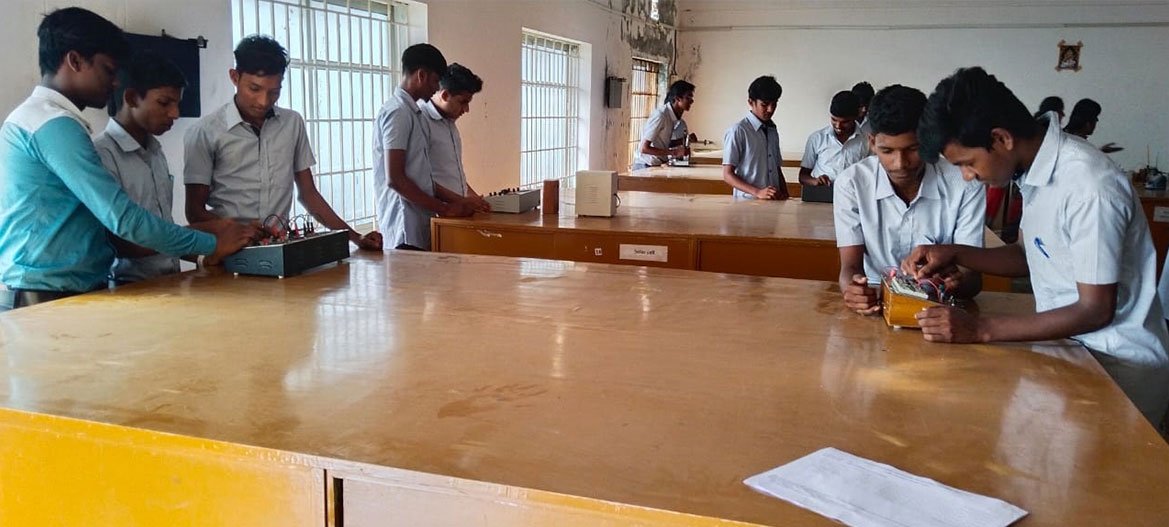
Course Details:
Engineering Mathematics:
Basic mathematical principles applied to engineering problem-solving.
Engineering Physics:
Fundamentals of physics with a focus on electrical and electronic applications.
Engineering Chemistry:
Introduction to chemistry principles relevant to electrical and electronics engineering.
Engineering Graphics:
Basics of engineering drawing, including projections and dimensioning.
Basic Electrical Engineering:
Introduction to electrical circuits, laws, and principles.
Basic Electronics:
Fundamental concepts of electronic components and circuits.
Digital Electronics:
Study of digital circuits, logic gates, and digital systems.
Electrical Machines:
Understanding the working principles of electrical machines like motors and generators.
Power Systems:
Introduction to the generation, transmission, and distribution of electrical power.
Control Systems:
Principles of control systems used in engineering applications.
Microcontrollers and Applications:
Programming and applications of microcontrollers in electronic systems.
Instrumentation and Measurement:
Techniques for measuring electrical quantities and instrumentation principles.
Power Electronics:
Study of electronic devices and circuits used for power control and conversion.
Electrical and Electronics Workshop:
Practical hands-on sessions for building and testing electrical and electronic circuits.
Communication Systems:
Introduction to communication principles and systems.
Industrial Training:
Practical training in an industrial setting to gain real-world experience.
Project Work:
Undertaking a project to apply learned concepts and develop problem-solving skills.
Career Opportunities:
Electrical Engineer:
Designing, testing, and maintaining electrical systems.
Electronics Engineer:
Developing and implementing electronic systems and components.
Control Systems Engineer:
Designing and maintaining systems for process control.
Power Systems Engineer:
Working on the generation, transmission, and distribution of electrical power.
Instrumentation Engineer:
Designing and maintaining control and measurement instruments.
Automation Engineer:
Implementing automated systems for various applications.
Telecommunication Engineer:
Working on the design and maintenance of communication systems.
Microcontroller Programmer:
Programming microcontrollers for embedded systems.
Electrical Designer/Drafter:
Creating technical drawings for electrical systems.
Field Service Engineer:
Providing on-site technical support and maintenance.
Testing and Quality Control Engineer:
Ensuring the quality of electrical and electronic products.
Maintenance Technician:
Troubleshooting and repairing electrical and electronic systems.
Project Manager:
Overseeing and managing engineering projects from conception to completion.
Research and Development Technician:
Assisting in the development of new products and technologies.
Entrepreneur:
Starting a business in electrical and electronics services or products.
A Diploma in Electrical and Electronics Engineering provides a solid foundation for various roles in the electrical and electronics industry. Graduates are equipped with the skills and knowledge needed to contribute to the design, maintenance, and improvement of electrical and electronic systems.